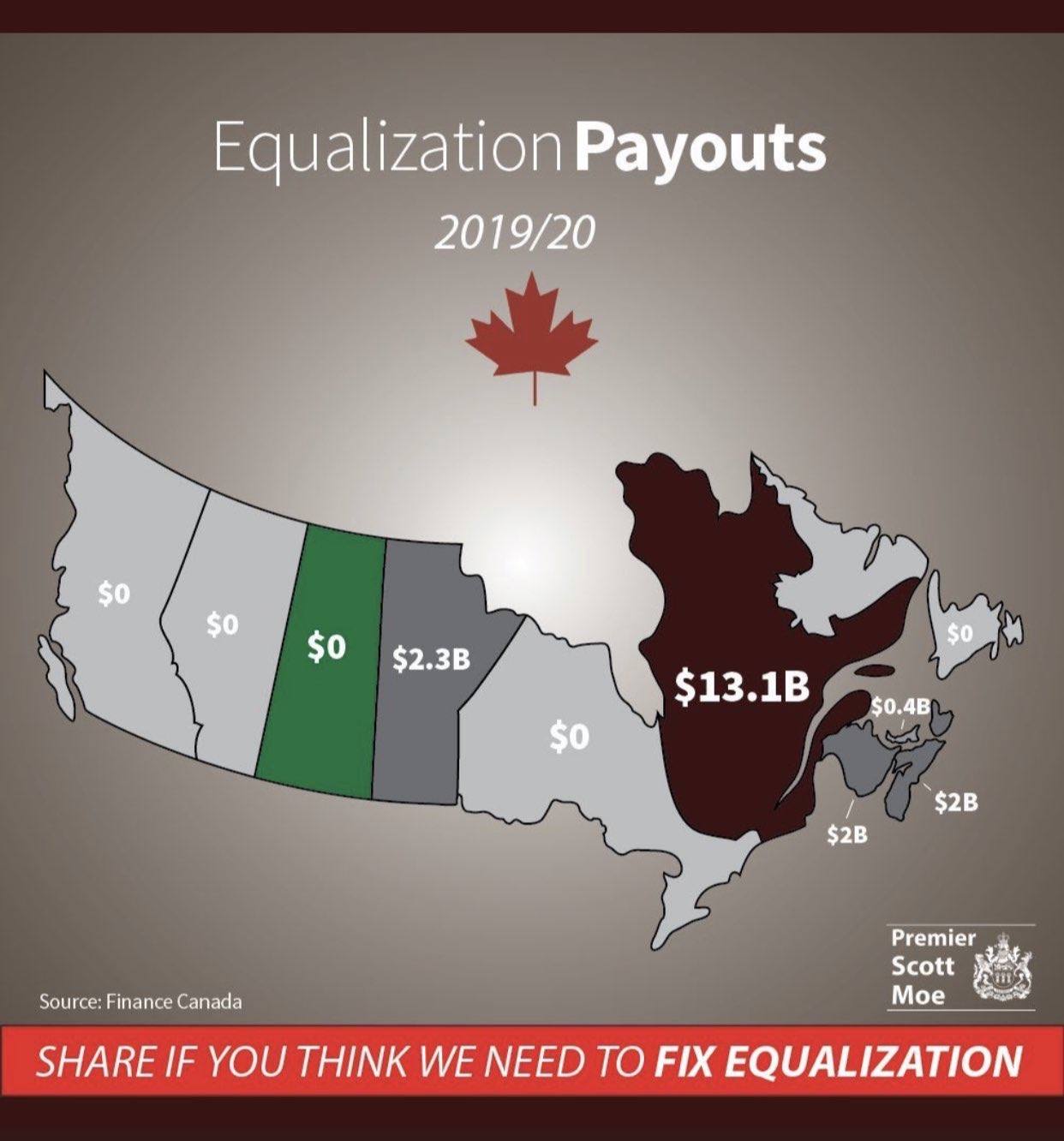For all you WEXIT people. Quebec says they are swimming in cash with a 800 million surplus!
Announcement
Collapse
No announcement yet.
Quebec
Collapse
Logging in...
Welcome to Agriville! You need to login to post messages in the Agriville chat forums. Please login below.
X
-
Comment
-
-
These guys are shameless;
Mr. Arseneau said Quebec “avoided the contagion†of low energy prices that struck Alberta, and is instead benefiting economically from low fuel prices and interest rates, which are keeping the Canadian dollar weak and benefiting Quebec exports.
Carlos Leitao, a former bank economist and the Liberal finance minister from 2014 to 2018 who balanced Quebec’s books after decades of deficit, said the update was disappointing. “The economy is slowing down, exports are decelerating, private investment is slowing down,†said Mr. Leitao, who is now opposition finance critic. “These are things that Mr. Legault described as his primary mission.â€
Mr. Leitao added that while “the government is in spending mode, at the same time, its spending is relatively well targeted.â€
Mr. Girard, the Finance Minister, said the government’s plan leaves enough surplus in place to counter any economic headwinds. “We’re only spending 33 per cent of the surplus. We’re being reasonable and responsible,†he said, adding that the money the government returned to Quebec parents will be good for economic growth.
Mr. Legault was buoyant as he arrived at the National Assembly, saying the economic update was “the cherry on the sundae†for his government.
Mr. Legault aims to get Quebec off federal equalization payments one day but, as long as the province lags behind in productivity and standard of living, that day remains beyond the horizon. The province will receive $13.1-billion in equalization this year, a figure expected to remain stable into 2022.
Comment
-
You have to look at all the federal programs and transfer payments to the provinces.
The social and health transfers go to every province in including Alberta and Saskatchewan.
Both the social and health transfers are much larger programs.
Harper, Flaherty Kenney made some small changes to the equalization program that were of benefit to Alberta. But they did not argue against the fundamental principles.
Alberta and Saskatchewan have large resource sectors, high wages and high GDP per capita. The current bust is an example of why resource based economies need to put more money away for a rainy day.
Instead they chose to fund core government programs on resource revenues, keep provincial taxes low, offer low royalties and let the oil and gas industry pocket the excess profits during the boom.
Alaska and Norway have made a better job of putting away some resource revenues for the future. Alaska and Norway are more fiscally responsible examples of how to manage a volatile resource based economy.
Norway came to Alberta to study their Heritage fund before setting up their own which is now worth over a trillion dollars! Norwegians are pretty conservative wealthy capitalists. But they knew what would happen when the oil industry faltered.
Comment
-
Are you dense chuck? AB provided $600B in transfers to the ROC who blew it. That was the heritage fund. Shovelled all into a black hole of vote buying.Originally posted by chuckChuck View PostNorway came to Alberta to study their Heritage fund before setting up their own which is now worth over a trillion dollars! Norwegians are pretty conservative wealthy capitalists. But they knew what would happen when the oil industry faltered.
Harpers and Kennys calculus was to let the equalization ride but turn AB into an energy monster. That quid pro quo has been shattered by climate radicals and Quebec nationalists. Now all bets are off.
Comment
-
Would you like me to pull the data up for you, Chuck?Originally posted by chuckChuck View PostYou have to look at all the federal programs and transfer payments to the provinces.
The social and health transfers go to every province in including Alberta and Saskatchewan.
Both the social and health transfers are much larger programs.
Harper, Flaherty Kenney made some small changes to the equalization program that were of benefit to Alberta. But they did not argue against the fundamental principles.
Alberta and Saskatchewan have large resource sectors, high wages and high GDP per capita. The current bust is an example of why resource based economies need to put more money away for a rainy day.
Instead they chose to fund core government programs on resource revenues, keep provincial taxes low, offer low royalties and let the oil and gas industry pocket the excess profits during the boom.
Alaska and Norway have made a better job of putting away some resource revenues for the future. Alaska and Norway are more fiscally responsible examples of how to manage a volatile resource based economy.
Norway came to Alberta to study their Heritage fund before setting up their own which is now worth over a trillion dollars! Norwegians are pretty conservative wealthy capitalists. But they knew what would happen when the oil industry faltered.
Alberta, and today SK pay more into every single "aid" and "transfer" program than they receive.
Today, Calgary has more jobless people than any other city in Canada and yet they are still the payee and not the beneficiary.
The west feeds the cow, Ontario and Quebec milk the cow, and the Easterners deal with the shit.
That's how it has been since confederation began.
You're right, resource revenues should be saved, and invested. How do you do that when they are continually being sucked off?
Comment
- Reply to this Thread
- Return to Topic List

Comment